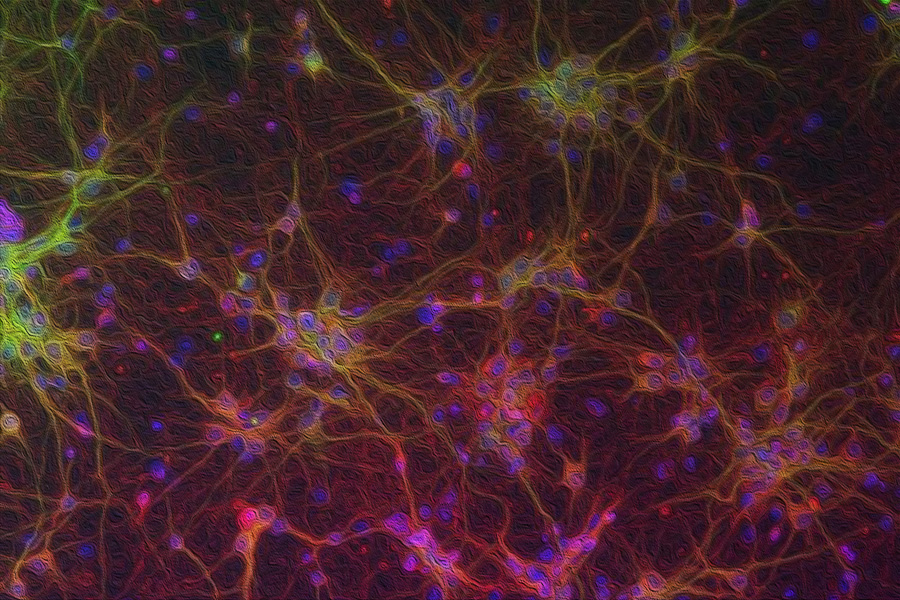Murine Behavioral Neurogenetics Facility
The Murine Behavioral Neurogenetics Facility provides behavioral phenotyping services for engineered mouse models and other mouse models with human clinical relevance. The facility is administered by the Institute for Brain and Cognitive Sciences (IBACS)

About Us
Established in 2015, the mission of the Murine Behavioral Neurogenetics Facility is to:
- Use behavioral assessments to screen genetically modified or otherwise manipulated mice.
- Aid in development of mouse models of human cognitive function and/or clinical disorders.
- Promote interdisciplinary projects on and across campuses.
We serve both forward and reverse gene-behavior projects and other murine models with potential clinical relevance. Projects may involve identification of gene(s) suspected to play a role in behavioral, neurologic, or developmental disorders and associated creation of a mouse preparation for evaluating gene function.
We provide phenotyping to assess the impact of manipulating the gene of interest in the behavioral domain. Alternately, a principal investigator (PI) may already have a mutant model generated for molecular and cellular research. We can aid in expanding the phenotype into the behavioral domain.
Learn more about the behavioral tasks our facility supports.
What We Offer
Funding, Grants, and Fees
The Murine Behavioral Neurogenetics Facility follows a fee for service structure. Fees are partially subsidized by support from the Institute for Brain and Cognitive Sciences, which covers any full or part-time research assistants.
Individual PI fees reflect number of animals, hours of testing, per diems during testing, and equipment use and maintenance. PIs with external funding can reimburse our fees via internal KFS transfer.
Unfunded Work
Investigators seeking pilot data for unfunded work can apply for an IBACS Seed Grant to support our services as needed and as negotiated with our director.
External Funding
Investigators applying for new external funding (NIH, NSF, etc.) that includes phenotyping services should contact the director to discuss study design and associated budgeting costs.
Facility Description for Grant Proposals
“The University of Connecticut Murine Behavioral Neurogenetics Facility (MBNF) is available to faculty and PIs on a fee-for-services basis. The MBNF provides customized selection from a range of well-established motor, social, cognitive, anxiety-based, and sensory tasks for use in mice. The specific task battery and schedule for the current study were developed to tap behavioral domains associated with specific experimental manipulations, and to accommodate estimated effect sizes (power/minimum n per group). The MBNF director is a full professor of behavioral neuroscience with 30+ years of experience in behavioral testing and phenotyping of rodents. The facility is housed in approximately 1,500 square feet of IACUC-approved research space in the Bousfield building/Psychological Sciences (University of Connecticut, Storrs, CT), contiguous to the AALAC accredited Vivarium. The MBNF houses numerous paradigms, automated tasks, and audio/video recording facilities and is staffed by RAs and student assistants.”
Fee Formula for Grant Budgets
The PI should contact our director for a more detailed assessment, but rough costs can be calculated by number animals (total) x testing days (estimated) x $10*.
Sample: A typical study of a single-gene mutation would require 24 animals (12 KO and 12 wild-type). A basic battery of motor, emotional, and sensory tasks would take about 20 days (Mon-Fri). Estimated cost: 24 animals x 20 days x $10 per animal per day = $4,800. This includes housing costs for 20 mice for the month.
*Fee-for-service formula subject to change. We will honor fees at the time of grant submission, if included in the original budget.
How to Get Started
The Murine Behavioral Neurogenetics Facility is open to UConn researchers working on projects led by PIs affiliated with the Institute. If you are not currently an IBACS affiliate, please complete the affiliate membership form before getting started.
To use this facility, please email the director of the lab.
Our Team
Faculty Consultants and Partners
Nicholas Audette
Elissa Chesler
Alex Jackson
Nicole Landi
Mike O’Neill